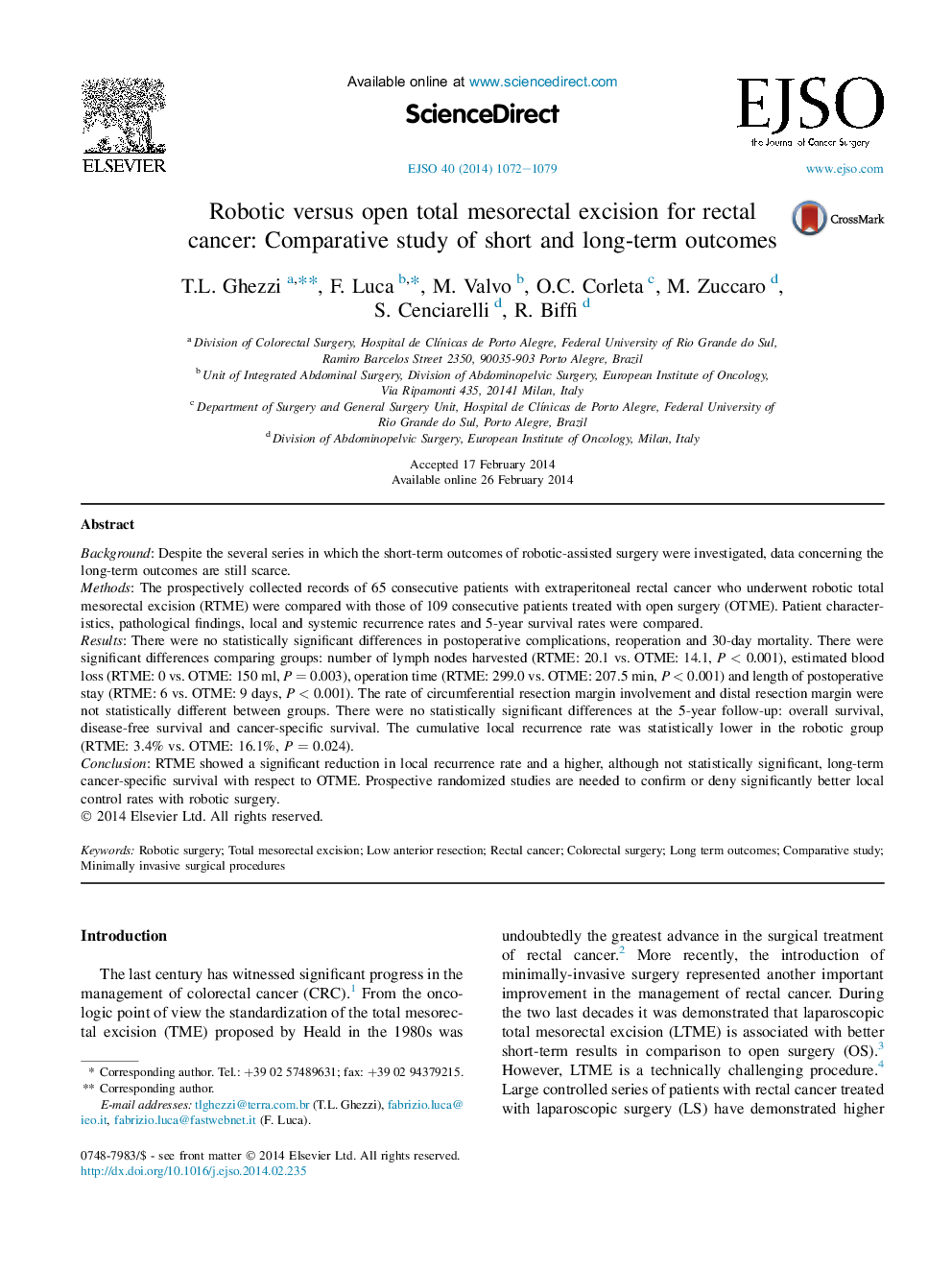| Article ID | Journal | Published Year | Pages | File Type |
|---|---|---|---|---|
| 6191866 | European Journal of Surgical Oncology (EJSO) | 2014 | 8 Pages |
BackgroundDespite the several series in which the short-term outcomes of robotic-assisted surgery were investigated, data concerning the long-term outcomes are still scarce.MethodsThe prospectively collected records of 65 consecutive patients with extraperitoneal rectal cancer who underwent robotic total mesorectal excision (RTME) were compared with those of 109 consecutive patients treated with open surgery (OTME). Patient characteristics, pathological findings, local and systemic recurrence rates and 5-year survival rates were compared.ResultsThere were no statistically significant differences in postoperative complications, reoperation and 30-day mortality. There were significant differences comparing groups: number of lymph nodes harvested (RTME: 20.1 vs. OTME: 14.1, PÂ <Â 0.001), estimated blood loss (RTME: 0 vs. OTME: 150Â ml, PÂ =Â 0.003), operation time (RTME: 299.0 vs. OTME: 207.5Â min, PÂ <Â 0.001) and length of postoperative stay (RTME: 6 vs. OTME: 9 days, PÂ <Â 0.001). The rate of circumferential resection margin involvement and distal resection margin were not statistically different between groups. There were no statistically significant differences at the 5-year follow-up: overall survival, disease-free survival and cancer-specific survival. The cumulative local recurrence rate was statistically lower in the robotic group (RTME: 3.4% vs. OTME: 16.1%, PÂ =Â 0.024).ConclusionRTME showed a significant reduction in local recurrence rate and a higher, although not statistically significant, long-term cancer-specific survival with respect to OTME. Prospective randomized studies are needed to confirm or deny significantly better local control rates with robotic surgery.
